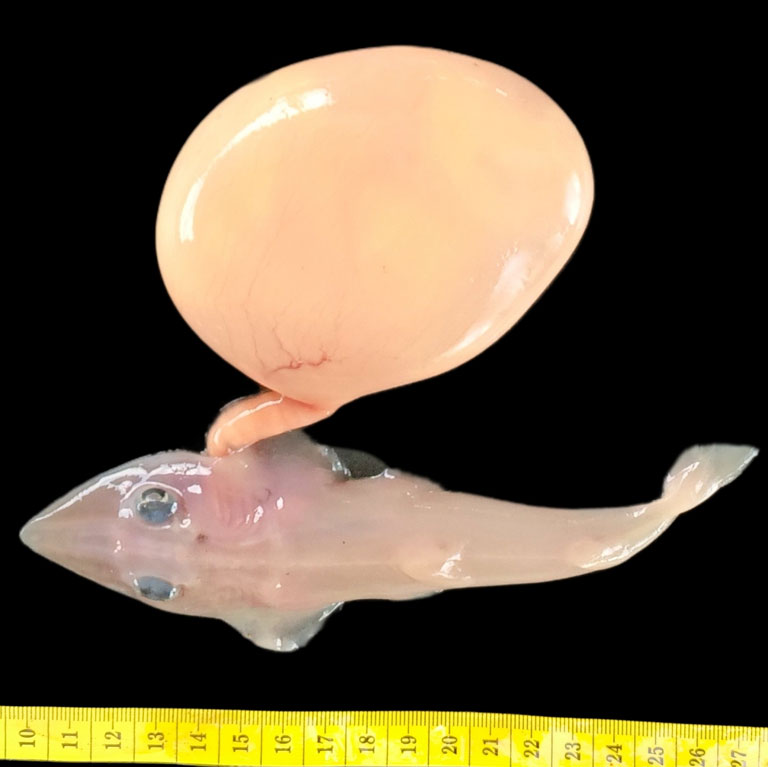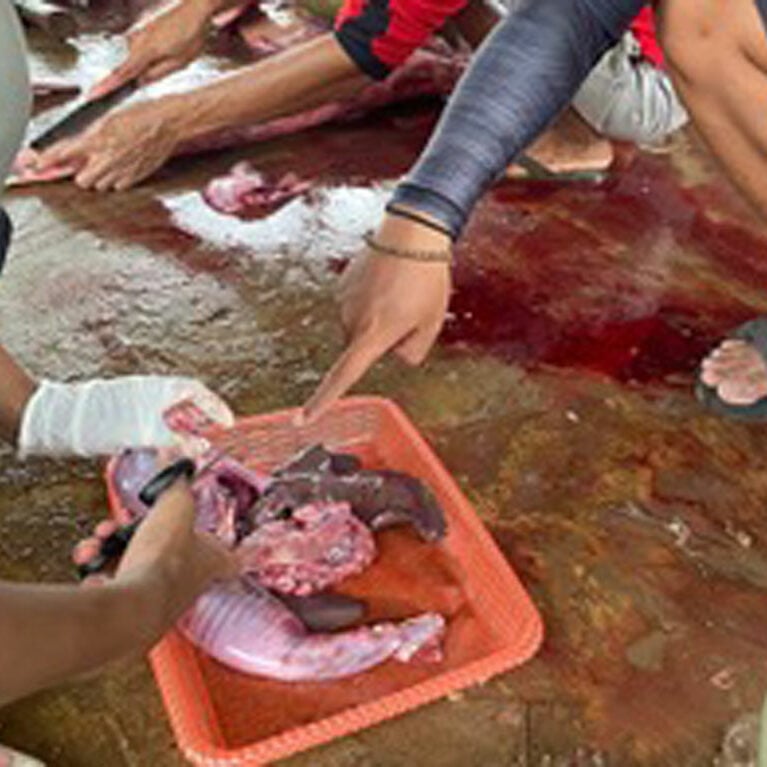Saving the giants of Karimunjawa
Faqih is searching for giants and rarities: the giant guitarfish and wedgefish of Karimunjawa National Park in the Javan Sea off the coast of northern Central Java. He aims to develop an effective and inclusive management plan for these vulnerable shark-like rays. To do so, Faqih first needs to fill in all the information gaps: how do they breed? Are they traded? What do they eat? How many are caught? The questions are numerous and varied, but the necessity is high: these species are critically endangered, and the national park is situated close to the main fishing grounds for northern Java commercial fisheries.
I was born and raised in a Javanese household in South Tangerang, a city on the outskirts of one of the busiest capitals in the world – Jakarta. Although I grew up far from the ocean, it was always my favourite place to visit, especially over a weekend or on long holidays with my family. My love for the marine world only grew as I filled my days with encyclopaedias and books about the ocean and what was and continues to be my favourite animal, the shark. The documentaries and scientific television series I frequently watched further fuelled...


Assessing the critically endangered Rhino Rays fisheries, trade, and ecology in Karimunjawa National Park, Indonesia
The project aims to reduce fisheries threats to giant guitarfish and wedgefish in Karimunjawa National Park (KJNP) by providing scientific ecological, fisheries and trade data to inform the development of a management scheme that will benefit both the species and the local fishers.
The project aims to provide a safe haven for giant guitarfish and wedgefish in KJNP as a potential stronghold for their population in the Java Sea. In doing so, assessing their ecology and interaction with the local community (in this case local fishers), as well as the threats posed by fisheries and trade, will be key to developing an effective and inclusive management scheme for both the species and local fishers in KJNP.
The giant guitarfish and wedgefish are classified as Critically Endangered on the IUCN Red List and are on CITES Appendix II, and both are highly exploited due to the high value of their fins in Indonesia. Despite this, regulations relating to their capture are not yet well implemented in the country, although Non-Detriment Finding documents have been provided to emphasise the need for strict fisheries management and rules concerning the utilisation of guitarfish and wedgefish products and the protection of critical habitat.
KJNP is a multi-use marine protected area located in the Java Sea off the coast of northern Central Java. The national park is also located near the main fishing ground for the commercial fisheries of northern Java. After a citizen science report on the Elasmobranch Project Indonesia (EPI)’s website in 2019 and the subsequent Guitarfish Project in 2022, giant guitarfish and wedgefish were well documented in KJNP, and two species – Glaucostegus typus and Rhynchobatus australiae – were identified as of 2022. According to the report, both species are taken as bycatch and as a secondary valuable catch by local artisanal fisheries in KJNP and are targeted by fishers from Demaan region in Jepara Regency, Central Java.
This project will study the ecology of giant guitarfish and learn more about the effects of fisheries and trade in the KJNP–Demaan area. By means of a workshop and a citizen science scheme, it will also make local fish buyers aware of how trade in CITES-listed species is traced and how to report any of these species sold to them. Ultimately, the information produced by this project will be combined with previous scientific information the EPI team has compiled and will be used to develop an effective and inclusive management plan for both species and local fishers in KJNP.
- To collect landings-based data and from them quantify giant guitarfish and wedgefish mortality in fisheries; identify pressure from fisheries, trade routes used and the traceability of guitarfish and wedgefish products; and study the species’ reproductive biology and diet.
- To engage with local fish buyers in KJNP and Demaan–Jepara by means of a workshop and a citizen science scheme and thus increase their knowledge and awareness of trade in CITES-listed species, the traceability of that trade, and how to report these species sold to them.
- To provide results of the project and conservation recommendations for the development of an effective and inclusive management scheme to the KJNP Agency as the local authority and to other relevant national or international entities.
Published papers: stay tuned for upcoming papers:
The project will draft two scientific articles and plan to submit them to an international peer-review journal by July 2025 at the earliest. The first paper will cover the bioecological information produced from the project, covering the reproduction, diet, and age and growth of rhinorays in KJNP waters. The second paper, following the opportunistic sampling of rhinorays tissue samples, will cover the genetic diversity of the bottlenose wedgefish (R. australiae) and giant guitarfish (G. typus) in KJNP and surrounding waters, with potential for genetic comparison with population from Malaysian waters in collaboration with Universiti Malaya. The fishery and trade data collected from the project will be combined with further data collected in 2025, and hopefully 2026, to produce better temporally-interpretable data to avoid bias in concluding the data analysed.

